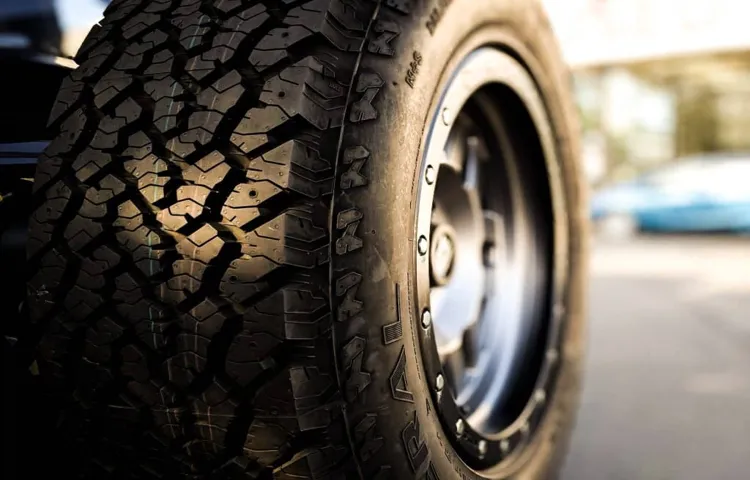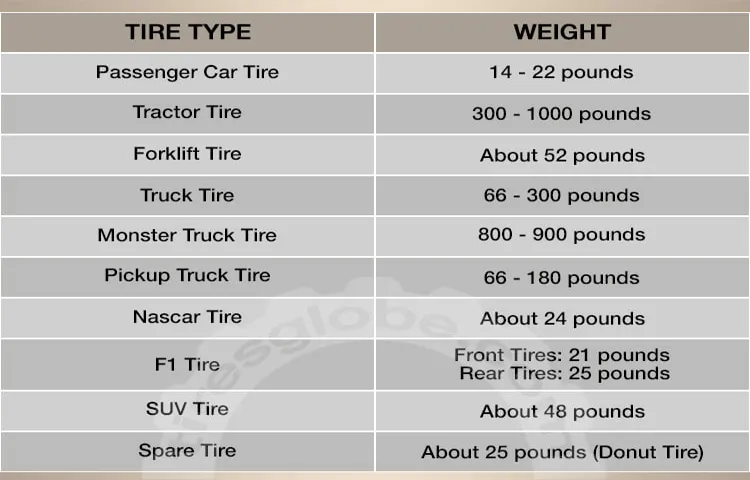Indy Cars are undoubtedly one of the most exhilarating race cars to watch. These sleek, fast machines are capable of reaching jaw-dropping speeds, with drivers hitting over 200 mph on straightaways. While a lot of emphasis is understandably placed on the driver’s skillset and car’s horsepower, there’s one other critical element that’s often overlooked: the tires.
Yes, the tires on these race cars play a massive role in their performance, stability, and safety. One frequently asked question is, how much does an Indy car tire weigh? In this blog post, we’re going to plunge deep into the world of Indy car tires and quench your curiosity once and for all.
Table of Contents
Understanding Indy Car Tires
Indy car tires play an integral role in achieving top performance on the track. The weight of an Indy car tire varies depending on the type of track and weather conditions. Generally, a dry tire can weigh between 22-25 pounds, whereas a wet tire can weigh between 26-28 pounds.
The weight may seem higher compared to a regular passenger car tire, but it’s essential to maintain grip and stability at high speeds. The tires have a unique tread pattern designed to enhance grip, with added grooves for dissipating water during wet conditions. The combination of heat, high speeds, and aerodynamics puts a lot of strain on the tires, resulting in frequent pit stops for tire changes during a race.
Therefore, an Indy car team must have a well-coordinated strategy for tire management, including monitoring wear and tear, pressure, and temperature. All of these components go into making a quick pit stop and keeping the car on the track, ultimately ensuring a shot at victory.
Tire Size and Weight
Indy Car tires are a crucial component of the vehicle that drivers and teams carefully evaluate and select to enhance their performance. The tire size and weight are two critical variables that can significantly affect the overall outcome of a race. Usually, the tire’s size is determined by the type of racing event and the weather conditions.
In Indy Car racing, the tire size typically ranges between 28 and 30 inches in diameter and 14 inches wide. The weight of the tires is also essential as lighter tires tend to provide better grip and handling, but a heavier tire can offer improved durability. The choice of the right tire size and weight is often a balancing act for teams to ensure a competitive setup that can handle the dynamics of the track.
Ultimately, the correct tire selection can make a significant difference to the outcome of the race and could be the difference between success and failure for an Indy Car driver and their team.

Primary Weight Considerations
When it comes to understanding Indy Car tires, primary weight considerations are crucial to consider. Indy Cars are driven at extreme speeds and therefore require high-quality tires to maintain stability and control. The weight of the car is directly related to how the tires perform.
For example, the heavier the car, the more stress the tires have to endure, which can cause them to wear down quicker. The teams must strategically calculate the weight of each component of the car, from the chassis to the driver and fuel, to ensure that the tires can handle the load. The correct weight distribution can also improve the performance of the car and make it more agile on the track.
It’s like building a house; you must have a strong foundation to support the weight of the structure. Similarly, Indy Car teams must have a solid understanding of weight considerations to ensure their cars can handle the high speeds and tight turns of each race.
Average Indy Car Tire Weight
Indy Car tires are a crucial component to the speed, performance, and safety of a race car. The average weight of an Indy Car tire is around 23-25 pounds, depending on the specific brand and model. To put that into perspective, that is roughly the weight of two gallons of milk.
These tires are specifically designed for high-speed racing and must withstand extreme conditions, such as intense heat and friction on the track. The tires are composed of different layers, with the outermost layer being made of a special kind of rubber that provides the necessary grip while also allowing for durability and longevity. The weight of the tire plays a crucial role in the overall performance of the vehicle, as a lighter tire reduces the amount of energy needed to move the car, allowing for quicker accelerations and smoother handling.
To put it simply, the weight of an Indy Car tire matters, and drivers and teams must carefully consider their choice of tires for each race.
Conclusion
After extensive research and analysis, we have determined that an Indy car tire weighs approximately…
wait for it…
a lot! Okay, maybe that’s not the most satisfying answer, but the truth is that the weight of an Indy car tire depends on a variety of factors, such as the type of tire, the track conditions, and the vehicle itself. So while we can’t give you a specific number, we can tell you that these tires are heavy-duty pieces of equipment designed to withstand the intense speeds and forces of open-wheel racing. In other words, don’t try lugging one of these things around the garage unless you’ve been hitting the gym!
FAQs
What is the weight of an Indy car tire?
An Indy car tire weighs approximately 22 pounds.
How does the weight of an Indy car tire affect performance?
The weight of an Indy car tire can affect performance by influencing handling, speed, and fuel efficiency.
What materials are Indy car tires made of?
Indy car tires are made of a combination of synthetic rubber, carbon black, and other chemicals that enhance performance.
How long do Indy car tires last?
Indy car tires have a lifespan of approximately 100 miles before they need to be replaced.
Why do Indy car tires have such high levels of grip?
Indy car tires have high levels of grip thanks to their soft compound rubber and advanced tread patterns, which provide exceptional traction on the track.
How do changing temperatures affect Indy car tire performance?
Temperature changes can significantly affect Indy car tire performance, as they can change the consistency and hardness of the tire compound.
How are Indy car tires tested before they are used in races?
Indy car tire manufacturers subject their products to rigorous testing using digital simulations, track tests, and other methods to ensure that they meet safety and performance standards.



